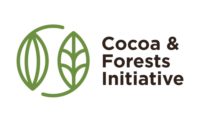Alongside leading cocoa and chocolate companies, Côte d’Ivoire and Ghana have adopted new standards to end deforestation and restore forest areas, the countries and companies announced Thursday.
The two West African countries, which annually produce two-thirds of the world’s cocoa supply, and nearly two dozen members of the cocoa and chocolate industry, have agreed to follow Frameworks for Action, as announced at the UN Climate Change Conference in Bonn, Germany, this week.
Central to these frameworks is a commitment against converting additional land for cocoa production, as well as eliminating illegal cocoa production in national parks. Stronger enforcement of national forest policies and development of alternative livelihoods for affected farmers are integral parts of the commitments.
Speaking at the event, Alain Richard Donwahi, Côte d’Ivoire minister of water and forests, said Côte d’Ivoire’s resources are essential to the socio-economic development of his country.
“We support this Framework for Action and the vision it lays out for preserving and restoring our forests, including the national parks,” he said. “We are pleased that the Framework is aligned with our National Policy of Preservation and Rehabilitation of Forests and the (UN) REDD+ strategy to secure our natural resources and help us to implement it.”
John Peter Amewu, Ghana minister of lands and natural resources, agreed.
“The Government of Ghana is committed to upholding the actions agreed in this framework and will do our part to ensure the Framework’s success,” he said. “This includes enhancing environmental governance and supportive measures that enable cocoa farmers to adopt cocoa agroforestry practices that are climate-smart and well integrated with our REDD+ strategies.”
These combined actions, which are aligned with the Paris Climate Agreement, will play a crucial role in sequestering carbon stocks and addressing global and local climate change. Both countries announced plans to introduce a differentiated approach for improved management of forest reserves, based on the level of degradation of the forests.
Up-to-date maps on forest cover and land-use, as well as socio-economic data on cocoa farmers and their communities, will be developed and publicly shared by the governments. Members of the chocolate and cocoa industry agree to establish verifiable monitoring systems for traceability from farm to the first purchase point for their own cocoa purchases. They will also work with the governments of Côte d’Ivoire and Ghana to ensure an effective national framework for traceability for all traders in the supply chain.
Furthermore, the two governments and companies pledge to accelerate investment in long-term sustainable production of cocoa, with an emphasis on “growing more cocoa on less land.” Key actions include providing improved planting materials, training in good agricultural practices and developing and building capacity of farmers’ organizations.
Sustainable livelihoods and income diversification for cocoa farmers will be accelerated through food crop diversification, agricultural intercropping, development of mixed agro-forestry systems and other income-generating activities designed to boost and diversify household income while protecting forests.
The governments and companies, which represent an estimated 80-plus percent of global cocoa usage, commit to full and effective consultation and participation of cocoa farmers in the process, as well as promoting community-based management models for forest protection and restoration. The governments will also assess and mitigate the social impacts and risks of any proposed land-use changes on affected communities and ensure provision of alternative livelihoods and restoration of a standard of living of those communities as needed.
Participating governments and companies have committed to a comprehensive monitoring process, including a satellite-based monitoring system to track progress on the overall deforestation target and annual, publicly-disclosed reporting on progress and outcomes related to the specific actions in each Framework.
Barry Parkin, World Cocoa Foundation Chairman, lauded the frameworks, adding they mark important steps in ending deforestation in cocoa-growing areas.
“In making good on these commitments, the public and private sectors will be partnering on actions that result in cocoa becoming a serious agroforestry crop, where different trees and crops coexist on the same land and previously deforested land is being rehabilitated,” he said. “This approach could serve as a model for other commodities.”
Companies that have already committed to the frameworks include the following: Barry Callebaut; Blommer Chocolate Co.; Cargill Cocoa and Chocolate; CEMOI; Cococo Chocolatiers; ECOM Group; Ferrero; General Mills, Inc.; Godiva Chocolatier, Inc.; Guittard Chocolate Co.; The Hershey Co.; Mars Wrigley Confectionary; Meiji Co., Ltd.; Mondelēz International; Nestlé; Olam Cocoa; Sainsbury’s; Toms Group; Touton; Tree Global; and J.H. Whittaker & Sons Ltd. Additional companies are expected to join them.







